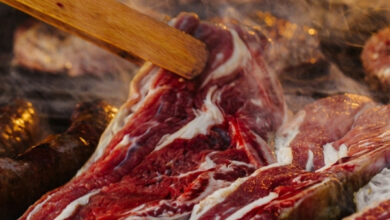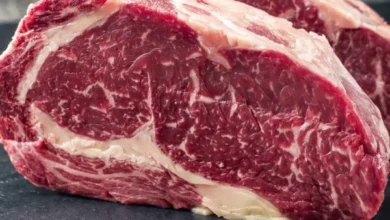
Halal and Kosher
Halal and Kosher are terms often associated with food and dietary practices, but they originate from different religious traditions—Islam and Judaism, respectively. Both halal and kosher laws define what is permissible to eat, but they have distinct rules, guidelines, and cultural implications. In this blog, we’ll explore the key differences between halal and kosher, helping you understand how these dietary practices work and what they entail.
1. Origin and Religious Context
Halal is an Arabic term meaning “permissible” or “lawful” in Islam. It is derived from the teachings of the Quran, the Islamic holy book, and the Hadith, the sayings and actions of the Prophet Muhammad (PBUH). Halal guidelines are part of Sharia law, the moral code that governs Muslims’ lives, including food, clothing, conduct, and more.
Kosher, on the other hand, is a Hebrew word meaning “fit” or “proper” in Jewish law. It refers to food that adheres to the dietary laws outlined in the Torah, specifically the book of Leviticus. The laws are interpreted and applied by Jewish authorities, and the term kosher extends beyond food to other aspects of life, such as rituals, clothing, and even business practices.
2. Types of Food Permitted
Both halal and kosher laws define which foods are permissible to eat and which are prohibited. However, there are differences in the specifics of what’s allowed.
- Halal:
- Meat: Halal meat must come from a permissible animal, such as cattle, sheep, goats, and poultry. Pork and its products are strictly forbidden. Halal slaughter requires the animal to be slaughtered in the name of Allah, with the blood drained from the body.
- Seafood: In Islam, most seafood is considered halal, though there are varying opinions about specific species.
- Alcohol: Alcoholic beverages are haram (forbidden) in Islam, and thus, all forms of alcohol, including in food or drink, are prohibited.
- Kosher:
- Meat: Kosher laws also prohibit pork, but they have additional restrictions on how meat is prepared. Only animals that chew cud and have split hooves (e.g., cows, sheep, goats) are permissible. Additionally, the slaughtering process (called shechita) must be carried out by a trained Jewish slaughterer (shochet) with specific prayers and guidelines. Blood must be drained, and the meat must be soaked and salted to remove any remaining blood.
- Seafood: Kosher dietary laws only permit fish that have both fins and scales (e.g., salmon, tuna), meaning shellfish (shrimp, lobsters, clams) and other non-scaled fish are forbidden.
- Dairy and Meat Separation: One of the most significant rules in kosher eating is the prohibition of mixing dairy and meat. Kosher households typically have separate utensils, cookware, and even dining areas for meat and dairy products.
3. Slaughtering Process
Both halal and kosher dietary practices require specific methods of slaughter to ensure the meat is permissible. However, there are differences in the techniques and the religious requirements for slaughtering.
- Halal Slaughter: Halal slaughter involves making a quick incision across the throat, windpipe, and blood vessels of the neck. The slaughterer must be a Muslim and recite a prayer (the Bismillah) before killing the animal, emphasizing that it is slaughtered for the sake of Allah. The blood must be drained from the animal.
- Kosher Slaughter: Kosher slaughter, called shechita, involves using a sharp knife to make a swift cut to the throat, windpipe, and esophagus. This is done by a trained Jewish individual known as a shochet. The process is designed to minimize suffering, and like halal slaughter, the blood is drained from the animal. One key difference is that kosher laws require the slaughtering knife to be inspected regularly to ensure it is perfectly smooth to prevent any unnecessary tearing of the animal’s flesh.
4. Certification and Supervision
Both halal and kosher foods require certification by a religious authority to ensure they comply with the respective laws. These certifications ensure that products meet the strict requirements of the faith, providing consumers confidence in what they are eating.
- Halal Certification: In many countries, halal certification is provided by local Islamic organizations or bodies. Halal food products, whether meat, packaged goods, or even cosmetics, must be certified to guarantee they do not contain any forbidden ingredients (like alcohol or pork) and that they follow the halal slaughter process.
- Kosher Certification: Similarly, kosher certification is granted by recognized Jewish agencies. The certification verifies that food products meet Jewish dietary laws. Kosher-certified products often display a symbol, such as the “OU” (Orthodox Union) or “OK,” to indicate that they meet kosher standards.
5. Key Differences in Prohibited Foods
While both halal and kosher diets prohibit certain foods, the specifics differ significantly:
- Pork: Both halal and kosher diets prohibit pork and pork-derived products, but the reasoning behind the prohibition may differ slightly. In Islam, pork is considered impure or najis, while in Judaism, it is prohibited due to the dietary laws outlined in the Torah.
- Alcohol: Alcohol is forbidden in Islam, making any food or beverage containing alcohol non-halal. In contrast, Judaism does not forbid alcohol outright. Kosher wine, for instance, is specially prepared and supervised, and it’s permissible in Jewish law. However, alcoholic beverages containing non-kosher ingredients or those that have been prepared improperly are prohibited.
- Dairy and Meat: As mentioned earlier, the mixing of dairy and meat is strictly prohibited in kosher laws, leading to the requirement for separate utensils and preparation methods. Halal laws do not have such a prohibition, so dairy and meat can be consumed together in halal diets.
6. Fasting and Special Dietary Observances
Both halal and kosher laws also include guidelines for fasting and special observances, especially during religious holidays:
- Halal Fasting: Muslims fast during the holy month of Ramadan, refraining from eating or drinking during daylight hours. The guidelines for fasting are strict, and the food consumed during Ramadan must meet halal standards.
- Kosher Fasting: Jewish fasting includes holidays like Yom Kippur and Tisha B’Av, where food is strictly prohibited for 25 hours. However, during regular meals, kosher dietary laws must be followed.
Conclusion
While both halal and kosher dietary laws aim to ensure that food is prepared and consumed in a way that aligns with the religious principles of Islam and Judaism, there are significant differences in the specifics. Halal laws are based on Islamic teachings, while kosher laws come from Jewish tradition. The key differences lie in the types of food permitted, the slaughtering methods, the separation of dairy and meat, and certification processes. Both practices have deep cultural and religious significance, providing their followers with a way to maintain spiritual and physical purity.
Understanding these distinctions can help foster respect and appreciation for these ancient traditions, and it also serves as a useful guide for consumers navigating food choices in a diverse, multicultural world.






